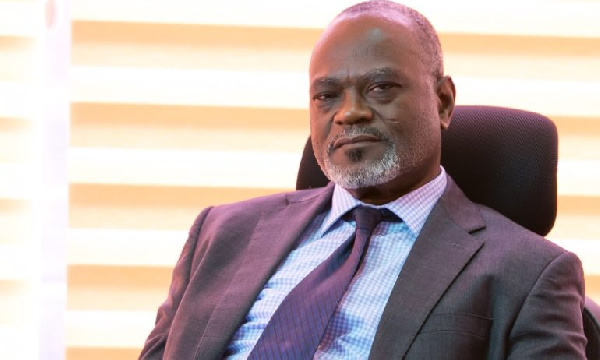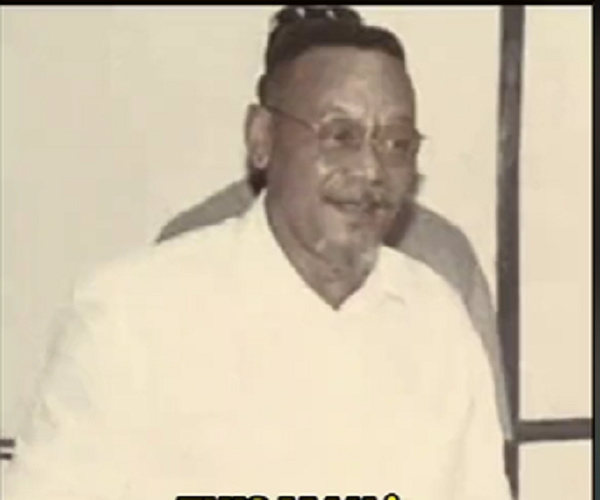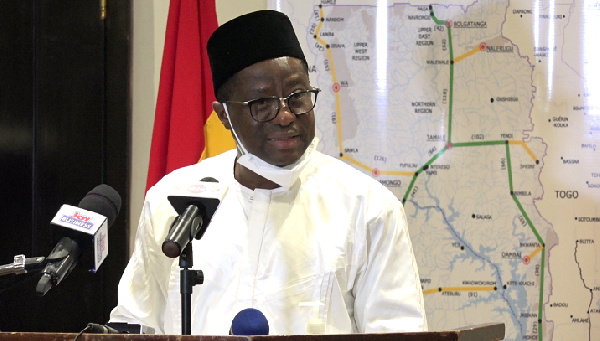

Does The President Speak “Affected English?”
Dailyguide Africa April 19, 2018
“… in his peculiar slang which I would term ‘affected English’, the complaining women felt threatened… He has to speak the Ghana English… to be understood… may be, sometimes, the President at formal meetings, should speak the vernacular…”
Daily Graphic March 13, 2018
CAROLINE BOATENG is a prolific writer of the Daily Graphic. In the March, 13 edition of the Daily Graphic, when my eyes flashed on an article headed ‘The Pesident’s Affected English’, I thought the veteran journalist had been swayed by the utterances of a few hard-working but vociferous ‘market women’ on an Accra television station, to raise issues about the President’s articulation. You may say, it is not the ‘market women‘ alone; some key members of the opposition, have sought to make mockery of the President’s speech as nothing but ‘wora-wora-wora’!
Nana Addo, speaks French, but his speeches in English have not been affected by the French accent accentuated by the influence of the ‘cedilla’, ‘accent aigu’, ‘circonflexe’, ‘accent grave’, et cetera. If you speak with a typical French native in English, you are likely to hear: zis (this); zat (that); vee (we); ‘elp (help).
To say that his speech is in ‘affected English’ is to imply that his English is pretentious. So, he should rather behave like the Ghanaian hustler who “…out there… may resort to that affected English to get foreigners to understand him or her.
But when that is done, they resort to their Ghana (Ghanaian?) English, which is slow, well articulated and expressed.” ‘Affectation’ implies ostentation, superciliousness and snobbery. It is like arguing that the President’s speech approximates LAFA (Locally Acquired Foreign Accent). But President Nana Addo, the son of a former Ghanaian President, spent his formative years in England, attended Lancing College (Sussex) and Oxford University (later, the University of Ghana) and called to the Bar in Middle Temple, in London.
Compared with the average Ghanaian, his pronunciation approaches what is known as ‘Received Pronunciation’- the standard form of British English Pronunciation based on the educated speech, spoken by native speakers throughout England and Wales. Like the first Prime Minister of Nigeria, Alhaji Abubakar Tafawa Balewa, “the Golden voice from Nigeria”, the vocabulary and structure of the President’s speeches approach what is known as ‘Standard English’- that is, the language used by government, formally in the media, in schools, and international communication-the Queen’s English or BBC English.
He does not use slang-It is an anathema and infra dig. We should desist from confusing ‘slang’ with articulation-the movement of the tongue, lips, jaw together with other speech organs to make speech sounds. When peole speak with ‘an accent’ – American, Canadian, or Australian, we tend to call it ‘slang’. No, that is wrong.‘Slang’ is a type of language that consists of words and phrases that are regarded as informal, more common in speech than writing, restricted to particular contexts or groups of people. ‘Slang’ is thus close to ‘patois,’ ‘argot’ or ‘lingo’.
The President does not use the nasal twang of the average American (əmerik’n) speaker with their pronunciations, locutions, or discourses marked by nasal resonators. American speeches (not slang) usually change ‘t’ to ‘d’, the result of intervocalic alveolar flapping. See words like: ‘data’ (deidə), twitter (twidə), butter (b˄də), better (b[da)., and words like ‘latter’ and ‘ladder’ are pronounced the same.
A Ghanaian Professor in a Ghanaian University on a Delta flight to the USA asked the flight attendant; “Can I get some water” in the usual Ghanaian accent. The flight attendant hesitated. The Professor made a sign to indicate his request “Oh, w]:də” and she collected a bottle of water (w]:də)for him.
Some of our schools do not help. The teachers of English language may teach whatever they were taught in our Colleges of Education – grammar, essay-writing, literary devices, summary writing, comprehension – but not phonetics or phonology. The students themselves run from phonetics class, where they are ‘forced’ to twist and turn (vertiginate) their lips, tongues and faces to pronounce certain words..Some of us were luckier: we could mimic our native English teachers.
We in Ghana hardly make use of the unstressed ‘schwa’ (ə) in words . We tend to open our mouths too wide (spread them) to pronounce words, instead of the ‘rounded lips’, the labialisation of some vowels is ignored.
We used to tease our friends and teachers who frequently applied ‘phonetics’ in their speeches. ‘Phonetics’ that deals with the production of speech sounds is contrasted with ‘phonology’ which is the pattern of sounds.
We pronounce ‘mother’ as ‘moða’ , ‘father’ as ‘faða’ but the one using Received Pronunciation will rather pronounce these as ‘mʌðə’ and’faðə’. Where does the President go wrong? The phonetic transcription of the word ‘go’ is ‘gou”, but check how Ghanaians pronounce it, (goo) or ‘cocoa’ (kƏukƏu) as (kookoo) or ‘because’ (bikƏz) as (bik]:s) or kowtow (kotau) as (kotoo). Check the standardised International Phonetic Alphabet (IPA).
France has the ‘Academie Francaise’ as the official custodian of the French language with one of the aims being protection against the invasion of English and another against bad French. England has no such institution, and this flexibility of the English language allows for the growth of American English, Canadian English, Australian English, Indian English and even Ghanaian English- and now BBC has a section for ‘pidgin English’. It is tolerance and indulgence as far as English goes but it is not carte blanche (complete freedom to act as one wishes) because there are a few ‘rules’.
The market women were urging the President to ‘communicate’ with them. The impression is that they want him to speak Ghanaian English– drawling, speaking in a slow, casual (if not lazy) manner (my-name-is-Kofi), just as someone from Adanse-Brofoyeduru or Kokobra would speak. Should we be called Gahnayahns or Gahnians.
Check how the President calls us (Gahnayahns), certainly, he would not make the Nigerian mistake of calling us Ghana-nians. He would not stoop so low as to use Ghanaian expressions (what Kari Dako calls ‘Ghanaianisms’): ‘Don’t flash me’(leave your, number on a ‘missed call;’). ‘prepare tea for me’ (when the interlocutor expects cocoa (Milo) or coffee; ‘I am coming’ (when the person is going, and hopes to return); ‘on/off the light’ (switch on/ switch off the light); ‘going to come’(I’ll be back); ‘Bend-down boutique’-place for second hand clothes; ‘Keta school boys’(fingerlings found in the Volta River); ‘chop bar’ (eaterie, restaurant); ‘we shall chill this week-end’ (have a party, revel). In short, they want him to eschew ‘Aborofosem’ (not to be too Englishy) or ungrammatically ‘too known’ (overly all-knowing, pedantic). But even if he speaks Ghanaian English, how much of it will the market-women understand. Perhaps, as suggested by the writer, he will have to use vernacular- But on which occasion? What dialect?What opinion will the locals have—an imposition of one’s dialect on others? Dr. Prize McApreko, in Daily Graphic of 16th April, 2018 writes: “I am deeply concerned that in the recent past, inconsiderate choice of language has fuelled an increasing spate at which the Ghanaian public has individually / or collectively desecrated our own Presidency with words, descriptions and attributes which I lack the courage to print in such public spaces; lots of them abound in the media… this practice collectively demean us as Ghanaians… In the name of democracy, let us criticise where necessary, but in the name of public decorum, let us do this responsibly…”
Some people think ‘what is sauce for the goose is sauce for the gander.’ (Not: ‘what is good for the goose is good for the gander’). The late Ricky Nelson in ‘Garden Party’ had the Chorus: “All right now, I learn my lesson well. You see, you can’t please everyone. So you’ve got to please yourself.” Eye den oo, Presidency.
 Prev Post
Prev Post




